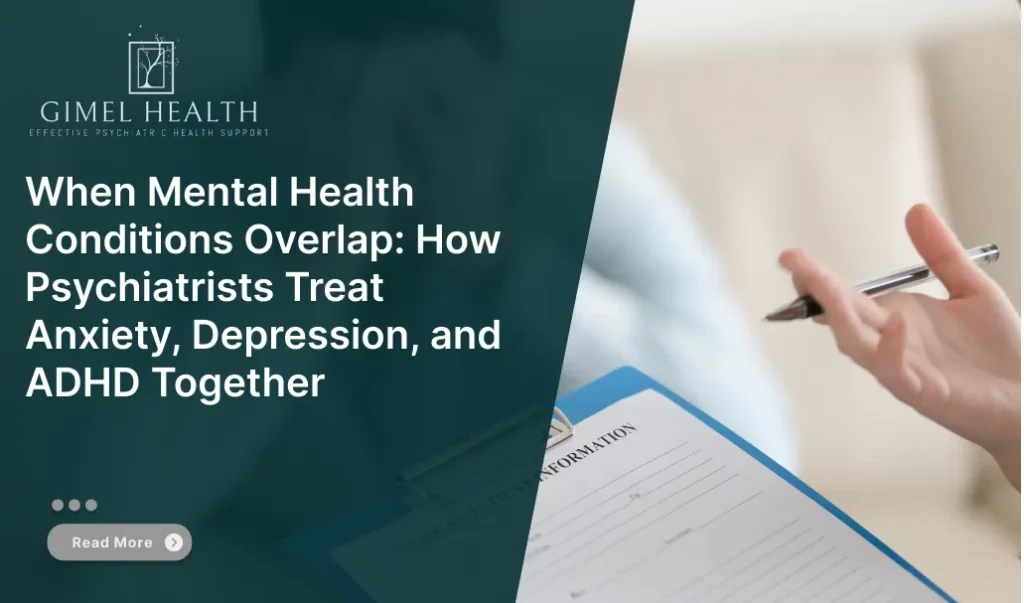
When Mental Health Conditions Overlap: How Psychiatrists Treat Anxiety, Depression, and ADHD Together
If you have ever wondered why your anxiety medication helps your worry but not your focus, or why treating depression
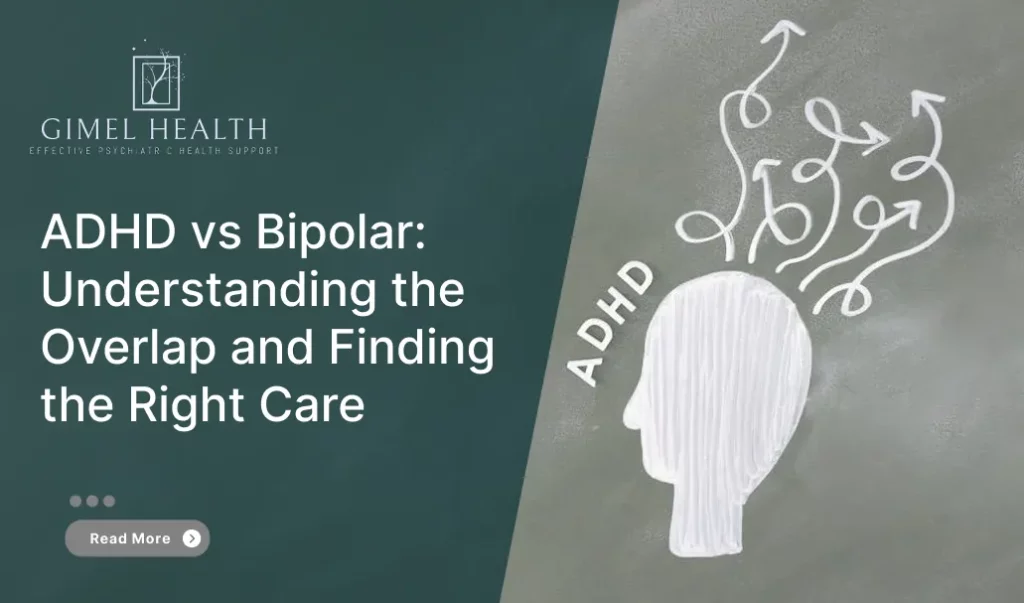
Distinguishing ADHD vs Bipolar disorder can be confusing. Both involve intense emotions, bursts of energy, and difficulty with focus or impulse control. Yet, despite these shared experiences, they are different mental health conditions that require unique care approaches.
At Gimel Health, we understand how challenging it can be for patients and families to find clarity. Our team of experienced mental health professionals is here to help guide you through an accurate diagnosis and an effective treatment plan tailored to your needs.
Attention-deficit/hyperactivity disorder (ADHD) is a neurodevelopmental condition marked by ADHD symptoms such as inattention, impulsivity, and hyperactivity. It often begins in childhood and can persist into early adulthood and beyond.
Bipolar disorder, on the other hand, is a type of mood disorder characterized by alternating manic episodes, depressive episodes, or periods of stability. These mood fluctuations can deeply affect daily life, relationships, and work.
While both conditions can cause emotional dysregulation, ADHD patients experience it consistently, while bipolar mood changes occur in distinct mood episodes; often lasting days or weeks.
Research from the National Institute of Mental Health shows that many people diagnosed with ADHD may also develop bipolar disorder later in life, a phenomenon known as comorbidity. Understanding this relationship is vital for effective, long-term mental health care.

Many symptoms overlap. Both ADHD and bipolar can cause distractibility, racing thoughts, irritable mood, and impulsive behaviors. However, the diagnostic criteria differ in how these symptoms appear over time.
In ADHD, symptoms are persistent and typically begin during childhood. In bipolar disorder, symptoms occur in distinct mood episodes; periods of manic symptoms (elevated energy, decreased sleep, grandiosity) or depressive symptoms (fatigue, loss of interest, feelings of worthlessness).
Because of these similar symptoms, some people with bipolar disorder are initially diagnosed with ADHD, or vice versa. A thorough differential diagnosis by a trained mental health professional is critical. At Gimel Health, we take time to review your family history, age of onset, and overall pattern of functioning to ensure an accurate diagnosis.
Studies have highlighted the frequent ADHD comorbidity in individuals with bipolar disorder. This overlap often leads to high comorbidity rates and can make both conditions more difficult to treat.
ADHD patients with bipolar disorder may experience:
These factors contribute to a higher risk of suicide attempts, particularly in young adults. That’s why it’s crucial to find mental health care providers who understand both conditions.
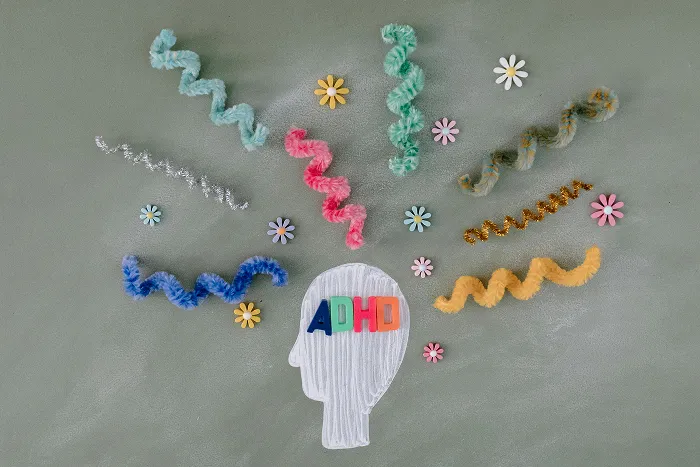
The relationship between ADHD and bipolar disorder is complex. Both may share underlying genetic factors, family history, and neurobiological differences. According to several systematic reviews and longitudinal studies, early signs of ADHD in childhood may predict later mood disorders such as bipolar.
Certain triggers can worsen symptoms in both conditions, including sleep problems, sleep deprivation, or substance use. Some conduct disorder or oppositional defiant disorder traits can also appear in adolescent psychiatry settings, making early intervention essential.
At Gimel Health, our clinicians stay informed on the latest research in Affective Disorders, ensuring every patient receives evidence-based and compassionate treatment.
The biggest difference between ADHD vs Bipolar disorder lies in timing and pattern.
A person with ADHD might have trouble focusing daily, while someone with bipolar might have weeks of extreme high energy followed by deep lows.
Those with both conditions often describe a hard time managing daily routines, work, and emotional balance. Identifying overlapping symptoms early helps clinicians create a more effective treatment plan and prevent unnecessary distress.
Navigating ADHD vs Bipolar can feel overwhelming, but the right care brings clarity. Understanding the different conditions, learning to recognize mood fluctuations, and working with a trusted mental health professional can make all the difference.
At Gimel Health, we believe that every person deserves personalized, compassionate, and scientifically grounded support. Whether you’re experiencing adult ADHD, mood disorders, or uncertainty about your diagnosis, our team can guide you toward lasting stability.
If you or someone you love struggles with focus, energy swings, or emotional imbalance, reach out to us today for a confidential consultation.

If you have ever wondered why your anxiety medication helps your worry but not your focus, or why treating depression
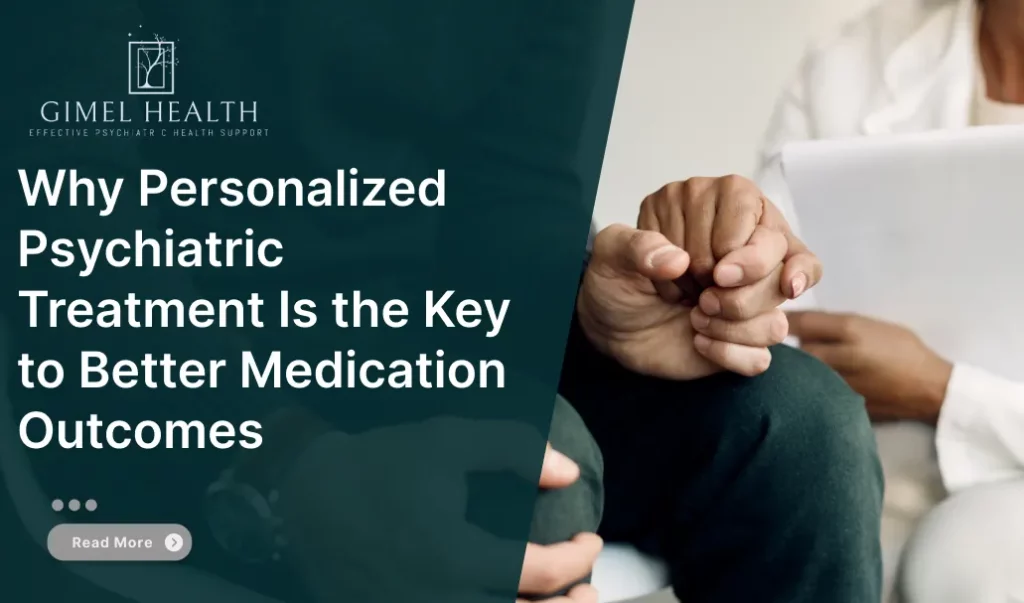
If you have ever started psychiatric medication and wondered why it did not help the way you expected, you are
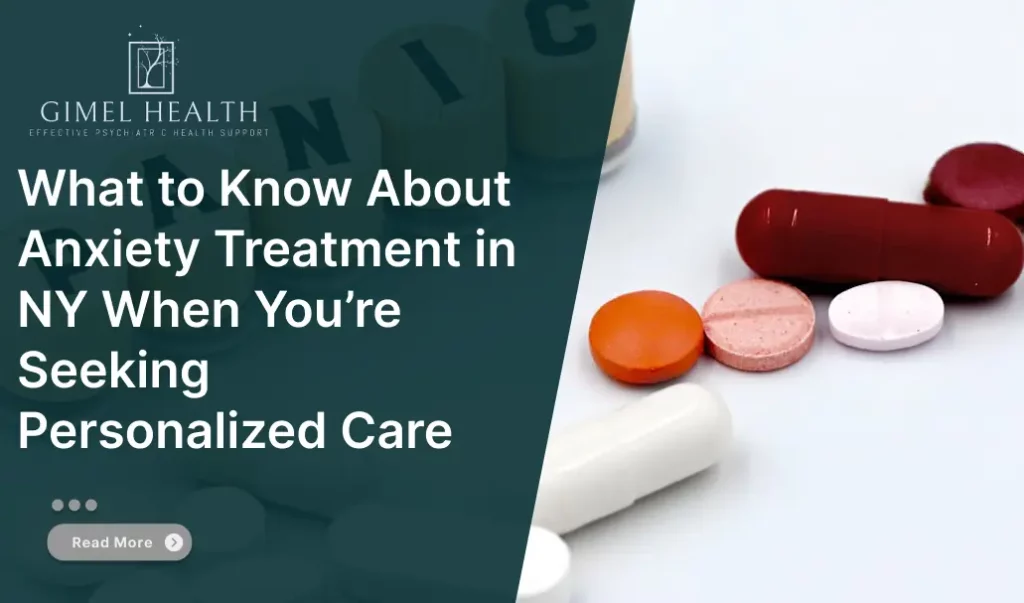
Anxiety is one of the most common mental health challenges facing adults and professionals today. If you are seeking anxiety
Your journey to better mental health starts here. With advanced expertise in biology and psychiatry, I build exclusive medication plans backed by science. Contact me to schedule your initial consultation.
(201) 815-4351
440 West Str, Ste 307, Fort Lee Bergen County NJ 07024
Yes. Many people experience both conditions, known as comorbid ADHD. It requires careful evaluation and a tailored treatment plan to address both mood episodes and attention difficulties.
ADHD causes continuous distractibility and restlessness, while bipolar mood changes occur in distinct phases, manic episodes or depressive episodes. A mental health professional can help differentiate these through a structured diagnostic criteria review.
In some cases, stimulant medication can intensify manic symptoms if mood is not stabilized. That’s why mood stabilizers are typically introduced first before stimulant treatment begins.
Research points to shared genetic factors, family history, and early signs in adolescent psychiatry. Environmental stressors and trauma can also raise the higher risk of dual diagnosis.
Yes. Therapy, lifestyle adjustments, and sleep regulation can reduce emotional dysregulation and improve daily functioning. At Gimel Health, we help you find the treatment plan that best suits your needs.
Yes. Children and young adults can experience both, though early diagnosis requires caution. Early evaluation helps prevent worsening mood disorders or psychotic symptoms later in life.
We use cookies to improve your experience on our site. By using our site, you consent to cookies.
Manage your cookie preferences below:
Essential cookies enable basic functions and are necessary for the proper function of the website.
These cookies are needed for adding comments on this website.
Google reCAPTCHA helps protect websites from spam and abuse by verifying user interactions through challenges.
Google Tag Manager simplifies the management of marketing tags on your website without code changes.
Statistics cookies collect information anonymously. This information helps us understand how visitors use our website.
Vimeo is a video hosting platform for high-quality content, ideal for creators and businesses to showcase their work.
Service URL: vimeo.com (opens in a new window)
You can find more information in our Cookie Policy and Privacy Policy.